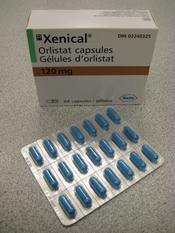Ephedra Based Supplements: Effective Fat Loss Agents or Dangerous Killers? Introduction Obesity in the United States is a problem of epic proportions. The burden obesity puts on the health care system costs taxpayers $78.5 billion annually and employers another $12 billion (Dixon, 2003). Many citizens will resort to over-the-counter (OTC) supplements or prescription weight loss pills to shed the fat. The most popular OTC fat loss pills are ones containing ephedra.
Ephedra has received negative media coverage recently due to the deaths of professional athletes Korey Stringer and Steve Belcher. Both men died in training camps and had bottles of supplements containing the naturally occurring substance ephedra in their lockers. These circumstances have caused the U.S. Congress to review the pros and cons of ephedra use. If Congress concludes that ephedra poses an unnecessary risk to the population, then the sale and use of ephedra will become illegal. The supplements are currently available to anyone who wishes to purchase them.
Ephedra is naturally occurring and can be derived from the Ma Haung plant (Dulloo, 2002). The main use for the substance is as a fat loss agent alone or when combined with aspirin and caffeine.
The two most popular FDA approved drugs for fat loss are Xenical and Meridia (Read, 2002). Both, like ephedra, have side effects. Xenical works by preventing fat in the gastrointestinal tract from being absorbed by the body (Leung, 2002) and is relatively safe. Meridia functions in a different manner. Meridia reduces caloric intake by suppressing hunger in the user (Leung, 2002).
This report will discuss whether the two currently FDA approved fat loss drugs are a better alternative to ephedra, thus justifying Congress? review. Since the outcome of Congress? decision could effect the health of millions of people, all aspects of effectiveness, cost, and safety...


